View a PDF version of this report
Introduction
The mentoring programme has been developed and guided by a Steering Group whose membership is representative of Academy Members. The refreshed programme builds on the previous NIHR Academy Mentoring Programme that was delivered by the Academy of Medical Sciences, expanding the programme to support all Academy Members, regardless of professional background. The refreshed programme was launched in February 2021. Each year, NIHR provides the opportunity for 75 matched mentoring pairs, prioritising those from backgrounds or disciplines that may not have previously had access to mentoring. In the first year of the mentoring programme, we launched three cohorts. This report focuses on Cohort 1 (2021).
The programme aims to support the academic and career development of NIHR postdoctoral communities by:
- Extending the NIHR mentoring programme to postdoctoral award holders from disciplines and professional backgrounds which may not have a strong mentoring tradition or may not have had access to programmes such as this in the past.
- Promoting interdisciplinarity working; mentees are able to seek a mentor from a cognate or complementary discipline or professional background, where appropriate.
- Supporting mentoring relationships between individuals from different organisations and institutions.
- Promoting equality, inclusion, and diversity through engagement with, and learning from, under-represented groups.
How we define mentoring:
We define mentoring as a non-directive developmental relationship; mentors support mentees to learn and grow. The relationship is often two-way: the mentor also develops. Mentors often draw on shared knowledge, skills, competencies and behaviours; they call on the skills of questioning, listening, clarifying and reframing. Mentors tend to have the organisational and contextual experience relevant to the mentee’s organisational and career-related system, and typically mentoring relationships tend to be longer-term than coaching.
We base our definition on the European Mentoring and Coaching Council (EMCC) approach to mentoring. EMCC Global recognises that the practice of mentoring is dynamic and evolving in a rapidly changing global context. In 2021, the EMCC Mentoring Group, was tasked by the Global Executive Board (GEB) to review the existing definition and make recommendations for an updated understanding. The Review Group adopted a triangulation approach, which included a literature search, focus groups and survey of members. The findings reflect and incorporate the perspectives of the wider mentoring community, including views from inside and outside the EMCC’s global community.
EMCC Global definition of mentoring:
“Mentoring is a learning relationship, involving the sharing of skills, know ledge, and expertise between a mentor and mentee through developmental conversations, experience sharing, and role modelling. The relationship may cover a wide variety of contexts and isan inclusive two-way partnership for mutual learning that values differences.”
Programme methodology:
We adopted the EMCC Global International Standards for Mentoring and Coaching Programmes (ISMCP) as an overarching framework for the design, implementation and evaluation of the mentoring programme. The ISMCP is an independent accreditation awarded to organisations designing, delivering and evaluating mentoring and/or coaching programmes either ‘in-house’ or externally. It is an integral and essential step on the path to establishing the professional credibility and status of good mentoring programme management, ensuring programmes are:
- Thoughtfully designed
- Systematically managed
- Significantly contributing to the development of participants, strategic drivers of the organisation and wider stakeholder objectives
The purpose of the ISMCP is to provide a consistent and globally accepted benchmark of good practice in mentoring and coaching programme management. The application of the programme framework enables NIHR to:
- Legitimise our mentoring programme against a recognised standard
- Strengthen and improve the mentoring programme through rigorous ongoing review
- Continue to build the evidence for developmental outcomes through mentoring, positively influencing key stakeholders
- Identify opportunities to promote mentoring development activity internally and externally
Programme timeline
Cohort 1
|
Expression of interest |
Orientation |
Match confirmed |
CPD |
Interim survey open and close | ||||
|---|---|---|---|---|---|---|---|---|
| 22 February 2021 | April 2021 | May 2021 | June 2021- May 2022 | October – November 2021 | ||||
|
Interim evaluation report |
Summative survey open and close |
Summative matched pair interviews |
Final report | |||||
|---|---|---|---|---|---|---|---|---|
| December 2021 | 12 July - 6 August 2022 | 7 June – 8 July 2022 | March 2023 | |||||
Recruitment process and matching
The mentoring programme uses expressions of interest for both mentees and mentors to apply to the programme, the dates and this information cascades to prospective applicants via the NIHR Infrastructure. All potential mentees and mentors are invited to submit an expression of interest within the application window. This application can be for the upcoming cohort or a later cohort depending on their preferences.
- Mentees are NIHR Academy Members who hold an NIHR postdoctoral award and/ or hold a postdoctoral position and are based in NIHR Infrastructure or in an NIHR School
- Mentors are NIHR Academy Members or Associate Members who are NIHR research leaders
The matching process is broken down into three stages, at stage one we review the matching criteria points that were selected in the expression of interest form. The matching criteria consists of eleven points that all applicants are asked to indicate which are most important to them:
- Balancing professional and academic work
- Career progression
- Career transition
- Research funding
- Developing a global/international research profile
- Networking/building relationships
- Work/life balance
- Diversity and inclusion
- Leadership development
- Research practice
- Managing research teams
We then move onto reviewing the free type responses for any additional preferences and supporting information, for example if a mentee would like to be matched with a mentor in a specific field or with specific experiences. Finally, we conduct a review at stage three of mentee and mentor preferences to ensure they match up and do not have any conflicts of interest before the match is confirmed.
Training and continuing professional development
Attendance at orientation training is compulsory for all mentees and mentors. It is delivered via an online interactive webinar, facilitated by the Programme Manager and external Mentoring Consultant. The orientation covers the following key topics:
- The programme team and their roles
- An overview of the aim and objectives of the programme
- The role of the mentor and mentee
- Ethics, confidentiality and key documentation
- Professional development offer
- Programme evaluation approach, phases and methods
Following the mentoring programme orientation, mentees and mentors are invited to attend a broad range of continuing professional development (CPD) optional interaction workshops. The purpose of the CPD workshops is to provide ongoing support at key transition points in the mentoring relationship, focusing on knowledge, skills and behaviours. The overall objective of the CPD workshops is to enable participants to develop effective and successful mentoring relationships.
The programme team developed additional workshops, based on interim feedback from mentees and mentors to support specific topic areas such as work-life balance, resilience and transitioning from mentee to mentor. Mentees and mentors are able to attend ‘drop-in’ sessions to meet the programme team on a monthly basis to address any aspect of their mentoring practice.
In line with EMCC Global ISMCP requirements, mentors are also provided with ongoing reflective practice support with peer mentoring workshops, facilitated by a suitability qualified and experienced external mentoring consultant. Mentees are also able to attend a dedicated reflective practice forum with their peers to discuss any aspect of their mentoring programme experience and/or broader professional development related topics.
Programme evaluation
The mentoring programme has a robust evaluation framework in place which supports the continuous improvement of the programme, the collation of evidence of achievement against the programme’s aim and objectives. Regular updates are shared with key stakeholders and identification of lessons learned informs the ongoing development of the mentoring programme, potential future programmes and wider audiences. The evaluation consists of two phases, the phase one interim evaluation and phase two summative evaluation.
Phase one
This took place five to six months and comprised a light touch temperature check survey for all participants, providing a feedback opportunity and to address any challenges which may have arisen. The interim evaluation opened on 21 October and closed 8
November 2021. Cohort 1 interim evaluation received 28 responses, 13 mentors and 15 mentees, overall a response rate of 49%. Cohorts 1 and 2 responses have been combined due to the one month gap between launch date and similarity of responses.
Phase two
At the end of the programme, participants are invited to complete an in-depth survey, focusing on their mentoring relationship experience and outcomes. The response rate was 32% (n=11) for mentees and 36% (n=10) for mentors. Five matched pairs attended semi-structured interviews, providing the opportunity to create in-depth case study exemplars. Cohort 1 interviews were conducted between 7 June and 8 July 2022 by an External Mentoring Consultant. The approved transcriber produced 99 pages of transcription across 5 matched pair interviews, ranging between 7 pages and 14 pages per interview. We prepared initial matched pair case studies. Each case study summarised the transcript content, including mentor and mentee profile, relationship focus, reflections on the mentoring relationship and perceived value. All participants were given theopportunity to review and amend their matchedpair case study. We share summary exemplars in this report.
In addition to the two phases outlined, we collect feedback at various touch points, including check-ins with participants at regular intervals and informal feedback via the continuing professional development sessions.
Key outcomes
We share a number of key outcomes from cohort 1, comprising data collected throughout the programme. The statistics cited in this section are drawn primarily from the summative surveys.
We received 96 Mentee expressions of interest and 76 Mentor expressions of interest
We created 34 matched pairs and we had one re-match in the cohort
Satisfaction with mentee – mentor match
- 100% of mentors and 80% of mentees were either very satisfied or satisfied with their mentoring match
Interdisciplinary mentoring relationships
- 90% of mentors and 45% of mentees described their mentoring relationship as interdisciplinary
Continuing in the mentoring relationship beyond the programme
- 70% of mentors and 36% of mentees will be continuing in their mentoring relationship
Continuing to engage in the mentoring programme
- 100% of mentors intend to support another mentee in a future programme cohort
Transitioning from mentee to mentor
- 82% of mentees intend to apply to be a mentor in a future programme cohort
Number of CPD sessions facilitated
- 74 CPD workshop topic sessions were delivered between June 2021 and July 2022
- Overall, programme participants attended 260 CPD sessions between 2021 and 2022
- Programme participants attended 64 CPD sessions in 2021, some attended multiple sessions
- Programme participants attend 196 CPD sessions in 2022, some attended multiple sessions
Most popular CPD sessions for mentees and mentors
- The most popular CPD workshop topic sessions were beginning the mentoring relationship, developing an effective mentoring relationship, work-life balance, and resilience
Overall view of the CPD and initial programme orientation
- Overall, the view of the CPD offer and initial programme orientation was very positive
Number able to build trust with their mentee or mentor
- 80% of mentors and 91% of mentees felt they were easily able to build trust
Number achieving mentoring relationship objectives
- 90% of mentors and 81% of mentees felt the programme met all or most of their objectives
Satisfaction with the mentoring programme
- 90% of mentors and 81% of all mentees felt the programme met all or most of their expectations
Areas of impact
In this section we identify key areas of impact, including the mentoring relationship focus, key themes discussed in the mentoring relationship and the perceived value of the mentoring relationships and programmes. To illustrate the areas of impact further, in the next section we present five matched pair mentor and mentee case studies. They provide further in-depth exploration of the mentoring relationships.
Mentoring relationship focus
Through the programme evaluation mentees and mentors described the overall focus of their mentoring relationship was career planning and progression, building capacity for fellowship applications, research funding and outputs, networking and building relationships, navigating the academic environment including politics and self-presentation, managing work-life balance and leadership development.
Key themes discussed in the mentoring relationship as described by mentees and mentors included:
- Career development and transition
- Work-life balance
- Research and funding
- Leadership and management
Perceived value of the mentoring and programme
Our mentoring programme has had a significant impact on the mentees, both personally and professionally.
Personal
- At a personal level, the mentoring increased their self-confidence, awareness of self-care and managing work-life balance practices
Professional
- As early career professionals, the mentoring conversation with experienced senior practitioners have helped mentees to explore career options and seek guidance on the next stage of their career. Some mentees expressed that they felt hugely supported in their career transition and learnt ways of networking, applying for research grants, managing the work environment, building collaborative relationships and leadership capacity
Mentees described how the mentoring has supported them in both the career and psychosocial space:
- ‘I think I benefitted quite substantially actually... it was good to have some of your achievements almost appraised, if you like, by somebody who doesn’t know you and that led to confidence building. It’s also good to have somebody external give you
advice about how to put aside some of the self-doubt you might have and how to appropriately reach out to other people. So, I think from a personal point of view that was good personal development as well as professional development.’ - ‘The benefit of being matched to – mentor - is seeing somebody from a similar background who has successfully made it to the top. This helps you realise that you deserve your place that you know you’ve worked hard for.’
- ‘I think she gave me a bit of a sounding board which was beneficial, allowed me to clarify my thoughts on quite a lot of things which was beneficial ... and just someone without an agenda guiding you through your own thought processes.’
- ‘My mentor was a motivational, inspirational person who was able to share things in a different light that did leave [me] feeling good about my career, feeling good about myself after [each session].’
A significant benefit was the independence of the mentor to the mentee:
- ‘I found it beneficial for someone who was totally removed ... to provide input. I think that is probably because we were in fairly disparate worlds from a research perspective and from a clinical perspective.’ (Mentee)
- ‘One of the reasons the mentoring relationship worked well [was] because I was genuinely independent, didn’t have a vested interest and was trying to help – mentee - find the right way for him without having an agenda of my own.’ (Mentor)
The following mentor comments illustrated the interdisciplinary nature of the relationships:
- ‘I am a social scientist mentoring a clinician.’
- ‘I am a training programme manager and qualitative researcher; my mentee was a clinical academic and epidemiologist.’
- ‘She is a physician, and I am a psychiatrist.’
- ‘The two mentees were clinical (I am non-clinical) and from different specialties to the area I work in so that was interesting for me.’
The following mentor and mentee comments illustrate the benefits of the interdisciplinary relationship:
- ‘Good to be interdisciplinary, I was mentoring a surgeon who was keen on research but did not have much experience of the scope of interaction with the pharmaceutical industry.’ (Mentor)
- ‘There were similarities and differences, I’m a psychologist, my mentee a GP, but had similar experiences of working across NHS and academia. They created a bond and simpatico understanding, but also awareness of different places and challenges.’ (Mentor)
- ‘My NIHR mentor worked in the field of respiratory medicine and immunology. My AMS mentor was a basic scientist in vascular biology. Their different perspectives on science/career development have been invaluable in helping me evaluate my work in different ways and to consider alternative routes for investigation that I had not previously considered’. (Mentee)
In the summative survey and matched pair interviews, mentees and mentors were very complimentary about their match. Specific comments from the survey included:
- ‘My mentor was so amazing I can’t thank her enough!’ (Mentee)
- ‘I think that my mentor and I just clicked on our first meeting - so the matching process must work really well!’ (Mentee)
- ‘I was particularly impressed by the matching of the scheme; my mentor was ideal in that he was from outside my field and yet had all the relevant expertise to give me sound advice and support.’ (Mentee)
- ‘I felt comfortable with her straightaway. I felt as though I’d known her for ages. It transpired that we both had very similar values and, like I mentioned before, that honesty thing, you know, she can call a spade a spade and say things how they are
and that’s how I kind of like working and I found that that got the best out of me.’ (Mentor)
For some mentees, the mentoring proved timely as they were potentially approaching a significant transition and/or deadline, as the following comments illustrate:
- ‘Through probably the most challenging aspect of my career to date and, having this mentoring relationship has given me the best chance of success that I could have had.’
- ‘If I hadn’t had those three mentorship meetings, I honestly don’t think that I would have made any progress. I would have just kept putting it off and putting it off because I felt awkward about it and then I just wouldn’t do it.’
Some mentees have been able to apply their learning in the mentoring relationship in their own practice:
- ‘The mentoring provided a fantastically reflective space ... what was so powerful about this opportunity for reflection is that I’ve not only used this opportunity to reflect on myself and I’ve briefly told my mentor this ... I’ve also taken on people to mentor and actually I’m using some of the lessons and advice that he’s given because I just wanted to share some of that with others.’
The aspects of the mentoring programme which were most helpful in supporting the mentoring relationships included:
- ‘The development sessions were useful as a refresher.’
- ‘Some of the training programme was new/refreshed previous training’
- ‘Availability of resources and support from NIHR.’
- ‘CPD sessions provided structure and advice on how to proceed, reinforced previous learning.’
- ‘The mentoring relationship match.’
- ‘Training webinars/workshops were helpful for my other roles of setting up mentorship relationships (as mentor), getting a better understanding of developing skills I didn’t appreciate (e.g., strategy.’)
The overall view of the mentoring programme was positive, illustrated by the following summative survey comments:
- ‘So positive! This has been so helpful, and I have developed so much as a professional in a style that works for me.’
- ‘Really helpful especially during a very stressful year.’
- ‘I thoroughly enjoyed my mentoring sessions and hope to continue the mentoring relationship outside of the programme as the advice and support has been invaluable’.
- ‘Really excellent. It was very useful to have a clinician mentoring me. I would like to be a mentor in the future - but not yet - I feel that to provide someone with the experience I had I need to be significantly more senior’.
- ‘Very helpful. I came in with very specific needs and these were met.’
Our mentoring programme has enabled mentors to build their emotional intelligence and develop their own self-insight around the holistic practice of mentoring, supporting their mentees’ personal and professional development, including confidence building, leadership positioning and self-presentation, successfully navigating a postdoctoral career. The formalisation of the mentoring relationships and the accompanying training and continuous professional development webinars were viewed as effective learning and reflective spaces by several mentors. As most of the mentor-mentee matches are across interdisciplinary health research areas, mentors also widened their knowledge and gained further insights into new areas of work.
For mentors the benefits have been broad, encompassing a sense of personal satisfaction, development of key mentoring skills and connectivity:
- One mentor described how the mentoring enabled her to ‘Share my experience and knowledge ... and help someone else develop and progress towards their own career development goal ... I am getting a bit of exposure to a new field, a different location and an opportunity to expand my network.’
The survey and matched pair interview evaluation data highlights that the mentoring programme and the mentoring relationships are having a significant impact on both the mentee and mentor learning and growth, whilst addressing important developmental topics.
Cohort 1: Mentor and mentee case studies
Pair 1:
Mentor - Dr Silvie Cooper
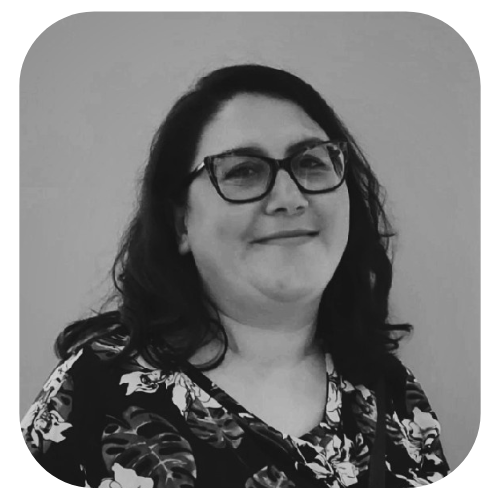 Silvie is a health sociologist and qualitative researcher. Currently, she is a Lecturer in Applied Health Research at University College London. Her research has focused on topics of peer education, formal and informal patient education, and chronic pain experience, with hard-to-reach groups in clinical and community settings, and on digital delivery of health information. More recently, Silvie has been involved in research collaborations and delivered research methods training programmes to build capacity for applied health research. She has also developed interests in evaluation of capacity building for health research, with a focus on career development for applied health researchers. She has successfully mentored four mentees to secure funding for further research from the NIHR. She has successfully secured funding from the NIHR and other funders in her own area of work as well.
Silvie is a health sociologist and qualitative researcher. Currently, she is a Lecturer in Applied Health Research at University College London. Her research has focused on topics of peer education, formal and informal patient education, and chronic pain experience, with hard-to-reach groups in clinical and community settings, and on digital delivery of health information. More recently, Silvie has been involved in research collaborations and delivered research methods training programmes to build capacity for applied health research. She has also developed interests in evaluation of capacity building for health research, with a focus on career development for applied health researchers. She has successfully mentored four mentees to secure funding for further research from the NIHR. She has successfully secured funding from the NIHR and other funders in her own area of work as well.
Mentee - Dr Harry Ahmed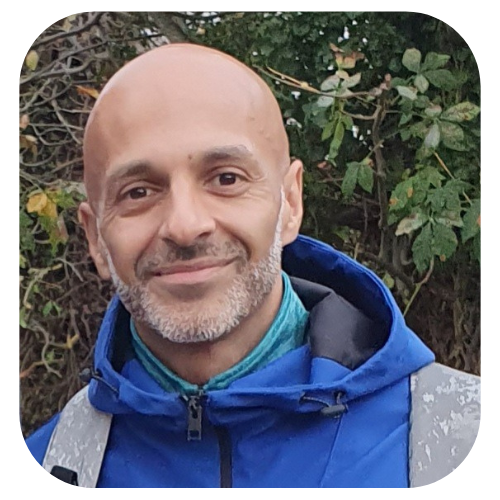
Harry is a Senior Clinical Lecturer in Epidemiology and Director of the Academic Fellows Scheme at the Division of Population Medicine, Cardiff University School of Medicine, and a practising GP at Penygraig Surgery,Rhondda Cynon Taf, a county borough in the south-east of Wales. His research focuses on using linked anonymised healthcare data to answer clinically relevant questions about common infections, antibiotic prescribing, and medication prescribing more generally.
Drivers for joining the mentoring programme
Silvie joined the NIHR Mentoring Programme ‘to get a formal set of training, experience and recognition for the informal work I was doing...and because I am funded by NIHR too in my work, being aligned to the way the NIHR approches mentoring for postdoctoral researchers was a useful endeavour as well’. Harry joined the NIHR mentoring programme last year as over the Covid 19 pandemic he felt that ‘I had less contact probably with some of my academic support network than he had previously’ and he also wanted to explore the potential benefits of having a formal mentoring relationship, having previously experienced informal mentoring support. Harry’s preference was to be matched to a mentor who was new and independent from his institution so he could broaden his views on how to address key challenges in an academic career.
Relationship focus
The mentoring relationship spanned over 12 months and Silvie and Harry had three mentoring conversations during this time and some contact via email. Harry wanted mentoring support on all aspects of career progression, including building a team, securing funding, research leadership, developing collaborations and connecting with stakeholders and policy makers. He was also keen to learn how to best support junior colleagues with hurdles and career bottlenecks.
Silvie highlighted that she adopted a person-centred approach to the mentoring relationship, acting as a sounding board for Harry to explore his overall career progression goals and objectives as well as how to address any potential challenges. Both confirmed that they were well matched in several aspects. Harry pointed out that Silvie being totally disconnected from his normal network, enabled a ‘frank and honest’ discussion which was highly beneficial. This objectivity enabled a broader focus on research collaboration options. Silvie observed that this was a two-way relationship of two professionals, highly experienced in their own areas of expertise, so developed into peer mentoring rather than the traditional concept of an older experienced mentor, guiding and advising a less experienced mentee. Silvie’s knowledge of NIHR, building international collaborations and managerial leadership experience also added to the strength of the mentoring exchange.
Key topics
The main topic of the mentoring conversation centred on building a stronger and more visible research profile to position Harry’s extensive experience as a research lead in his field. This involved widening Harry’s professional network and Silvie was able to offer guidance and share own experience in this area. Related areas of discussion included effective ways of tapping into current networks and building confidence as a research team leader.
Relationship satisfaction
Harry appreciated Sylvie’s pragmatic approach and practical ways of getting around some of the issues presented. Silvie acknowledged the opportunity to ‘share my experience and knowledge ... and help someone else develop and progress towards their own career development goal ... I am getting a bit of exposure to a new field, a different location and an opportunity to expand my network.’
Mentoring outcomes
Some specific mentoring outcomes from the relationship were the review and repositioning of Harry’s research profile on his university website and wider social media and renewed networking to establish international research collaborations. Harry has updated his research profile based on his mentoring conversations. Through Silvie’s recommendations, he established contact with a researcher at Imperial College and had a separate meeting to explore
research opportunities. He has also reached out to his PhD supervisor, dealing to new active collaborations and development of a research paper. Harry reflections highlight these benefits clearly, ‘I think I benefitted quite substantially actually... it was good to have some of your achievements almost appraised, if you like, by somebody who doesn’t know you and that led to confidence building. It’s also good to have somebody external give you advice about how to put aside some of the self-doubt you might have and how to appropriately reach out to other people. So, I think from a personal point of view that was good personal development as well as professional development.’
Overall reflections
Overall, Harry confirmed that having a mentor as a sounding board was the most valuable aspect of the relationship; the open and frank discussion on best approach and then the degree of accountability through clear goal setting was highly effective in motivating him to progress as planned. He says, ‘If I hadn’t had those three mentorship meetings, I honestly don’t think that I would have made any progress. I would have just kept putting it off and putting it off because I felt awkward about it and then I just wouldn’t do it.’ Overall, the mentoring relationship enabled career progression, networking to expand research and publishing opportunities and enhancing confidence to maximise the mentee’s potential.
Pair 2:
Mentor - Professor Catherine Pope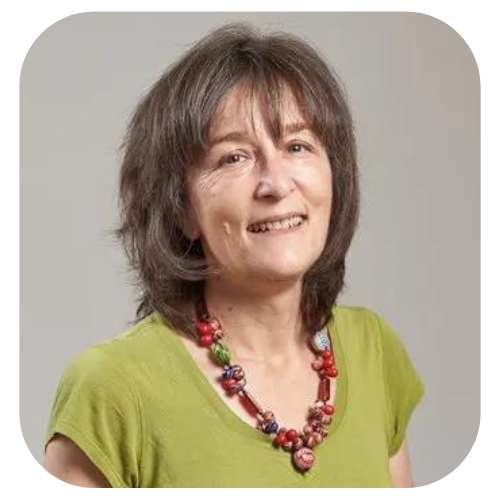
Catherine is Professor of Medical Sociology and the Associate Head of People, Equality, Diversity and Inclusion at the Nuffield Department of Primary Care Health Sciences. She is also a senior research fellow at Green Templeton College, Fellow of the Academy of Social Sciences and an NIHR Senior Investigator. Catherine has mentored health researchers at all levels over her extensive career and has been mentored herself. She was a licensed Springboard women’s development facilitator and delivered this programme for the CLAHRC Wessex. She has significant experience of supporting NIHR applicants for research and fellowship funding as well as career development.
Mentee – Dr Karen Eley
Karen is a NIHR Clinical Lecturer in Head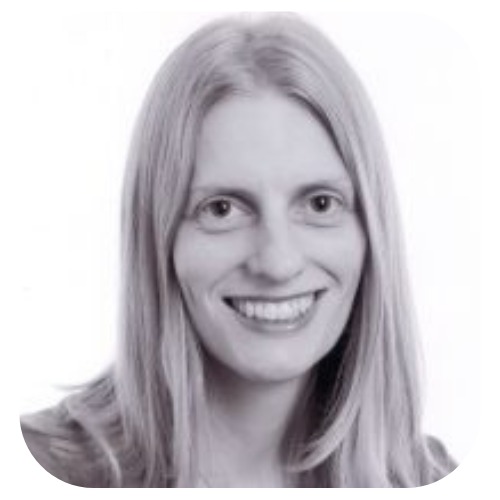 & Neck/Neuroradiology at the University of Cambridge School of Clinical Medicine. She completed her DPhil at the University of Oxford prior to commencing Radiology training on the Cambridge rotation as an Academic Clinical Fellow. Her main areas of research interest include 3D printing and novel MRI techniques for imaging the head and neck. She successfully established a working group and secured funding to establish a fully centralised 3D-printing service within Addenbrooke’s hospital. Her current research focuses on segmentation of bone to create 3D reconstructed images of the craniofacial skeleton from MRI in young infants with conditions such as craniosynostosis. This work was funded by an Academy of Medical Sciences Clinical Lecturer Starter grant.
& Neck/Neuroradiology at the University of Cambridge School of Clinical Medicine. She completed her DPhil at the University of Oxford prior to commencing Radiology training on the Cambridge rotation as an Academic Clinical Fellow. Her main areas of research interest include 3D printing and novel MRI techniques for imaging the head and neck. She successfully established a working group and secured funding to establish a fully centralised 3D-printing service within Addenbrooke’s hospital. Her current research focuses on segmentation of bone to create 3D reconstructed images of the craniofacial skeleton from MRI in young infants with conditions such as craniosynostosis. This work was funded by an Academy of Medical Sciences Clinical Lecturer Starter grant.
Drivers for joining the programme
Catherine observes that as she does not come from a traditional academic background and has a working-class accent, this can sometimes be an advantage to people who come from minoritised or non-traditional backgrounds who want to understand academic and clinical health research. She is committed to offering mentoring to early career researchers from non-traditional or disadvantaged backgrounds, including those from minority ethnic communities, who want to develop careers in health services research/medical sociology.
Karen has been applying for Advanced Fellowships. She sought NIHR mentoring support during her Advanced Fellowship application process whilst also establishing other formal and informal mentoring relationships.
Relationship focus
Catherine and Karen started the mentoring relationship in June 2021 and the relationship is continuing at present. Although the NIHR mentoring offer is for one year, Catherine and Karen are committed to the relationship beyond this period. Over the last year, they had three mentoring conversations via zoom and ongoing email exchanges related to Karen’s NIHR fellowship application. The overall emphasis of the mentoring was on career progression and transition, with a specific focus of the NIHR Advanced fellowship application.
Key topics
Karen defined this as a very supportive relationship and confirmed that the zoom conversations worked well alongside informal discussions via emails. As part of the mentoring support, interview preparation including responses to ‘tricky questions’ were discussed. Catherine added that apart from this focus on the application, ‘we had conversations about being a woman in this field, being a clinical researcher and juggling that and being in elite institutions and surrounded by elitism and, perhaps, sexism’.
Relationship satisfaction
The interviews highlighted that Karen and Catherine built a strong rapport and they were both pleasantly surprised by what they described as an excellent match. Karen pointed out that, ‘we have quite similar backgrounds, both originating from London, and even on our first meeting, we just clicked straightaway.’ Karen reflects that, ‘the benefit of being matched to Cathy is seeing somebody from a similar background who has successfully made it to the top. This helps you realise that you deserve your place that you know you’ve worked hard for.’ It was evident that she saw Catherine as a role-model to aspire to, at the same time recognising that they were from different specialties, each with specific challenges.
Mentoring outcomes
The interviews highlighted that Karen received expert guidance and support through the process of completing fellowship applications. Reflecting on the recent set-back with the application outcome, Karen observed that what she found most valuable was the recognition that, ‘we are from different specialties and this very different perspective helped me realise that fellowship funding is ultra competitive for clinicians when compared to some other specialities.’
Catherine observed that she has established a genuinely caring relationship with Karen which has evolved into a professional friendship. She noted that she also gained some helpful information, for example about Cancer Research UK which she could ‘add to my toolbox of knowledge about different funding schemes.’ She also referred to a book that was suggested during a mentoring CPD session which she found particularly helpful.
Overall reflections
Overall, both Karen and Catherine had a very positive mentoring experience. Karen concluded that the relationship offered guidance and support ‘through probably the most challenging aspect of my career to date and, having this mentoring relationship has given me the best chance of success that I could have had’.
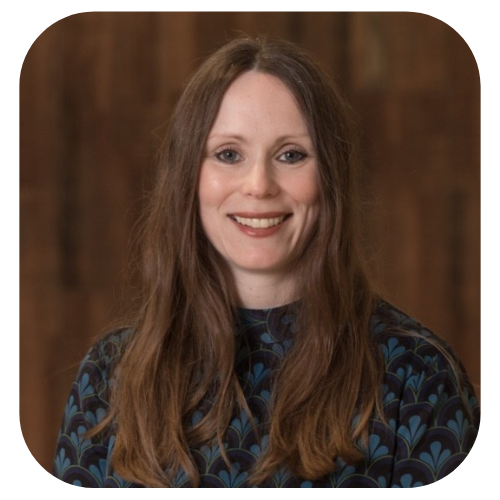 Pair 3:
Pair 3:
Mentor – Professor Julie Sanders
Julie is the Director of Clinical Research, at St Bartholomew’s Hospital developing research and clinical academic career opportunities for nurses and allied health professionals (AHP) in cardiovascular care. She has an honorary academic appointment at Queen Mary University of London. She is also the Society of Cardiothoracic Surgery (SCTS) Nursing and AHP academic lead, is a member of the Association of Cardiovascular Nursing and Allied Professions (ACNAP) Board (Treasurer) and is a Florence Nightingale Foundation Aspiring Dean Scholar 2018.
Mentee – Dr Laura Swaithes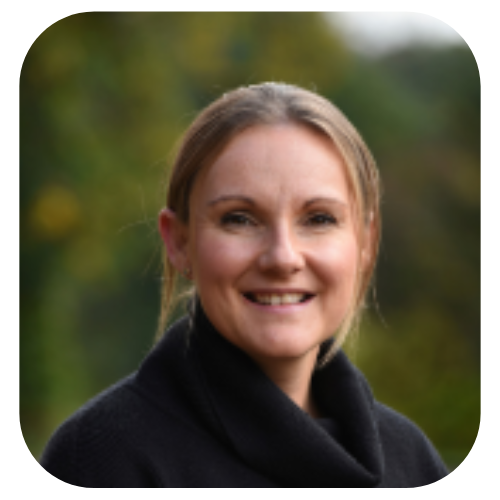
Laura Swaithes is a Physiotherapist by background and is currently working as a Knowledge Mobilisation Research Fellow at Keele University. In 2013 she completed the NIHR Masters in Research Methods at the University of Nottingham and subsequently worked on large research projects at the Arthritis Research UK Centre for Sports, Exercise and Osteoarthritis, and the Arthritis Research UK Pain Centre.
Drivers for joining the programme
Julie is particularly passionate about supporting individuals in their clinical academic career transition and progression. She offers many national and international opportunities for networking (from my own networks and beyond) and support in developing individuals (nurses, allied health professionals and healthcare scientists) beyond their research skills to develop into independent research leaders. She firmly believes in bespoke opportunities rather than a ‘one size fits all’ and thinks this individualised approach is optimal. She has joined NIHR Academy Mentorship programme to be able to contribute to supporting mentees through their clinical academic career journey.
Laura joined the mentoring programme to spend time with a mentor to discuss her career goals with someone external to her team and institution.
Relationship focus
Julie and Laura started the mentoring relationship in May 2021 and their final session was scheduled for June 2022 during the time of the research interview. During this period the pair met approximately every two months. She particularly wanted to explore some challenging experiences and scenarios as well as review some decisions and actions with someone: ‘who had trodden a similar path and was happy to share experiences and, I guess, advice and suggestions to things that I was struggling with ... I was also looking for a female mentor because a particular focus of mine was addressing work/life balance issues.’ Laura also clearly articulated that she wanted to enhance her confidence and self-awareness with regards to some academic challenges as well as develop her leadership skills. She was keen to achieve clarity on options and next steps for her career and maximise unforeseen opportunities whilst maintaining a work-life balance.
Key topics
The topics of mentoring conversations include building confidence to manage work dynamics, leadership approach and style, prioritisation, strategies to manage work commitments, work-life balance and self-care. Overall, the focus of the mentoring conversations was to support Laura to build her own identity as a post- doctoral academic professional and explore her leadership style and approach in this context.
Relationship satisfaction
Both Julie and Laura agree that they were well matched. Laura commented ‘I think my expectations were met [and] plus in that sense.’ This was also clear from Julie’s comment: ‘I think Laura and I managed to hit it off really well and quickly. I put that entirely down to her in that I think she came to it with very much an open mind ... and she was really honest, upfront and I think that level of openness was really refreshing and made me think, right, she’s jumped in with both feet actually ... I think that actually helped develop the relationship really quickly and really cemented it.’ Laura also highlighted this instant rapport between them, ‘I felt comfortable with her straightaway. I felt as though I’d known her for ages. It transpired that we both had very similar values and, like I mentioned before, that honesty thing, you know, she can call a spade a spade and say things how they are and that’s how I kind of like working and I found that that got the best out of me.’
Mentoring outcomes
It was evident from the research interviews that the mentoring relationship was highly effective and offered a reflective space for Laura to explore her career options and choices openly and honestly. Julie observed that Laura has gained clarity of thinking both from a personal perspective and professional perspective over the last year. In helping Laura to explore her leadership style as well as her intrinsic and extrinsic motivations, Julie’s approach was direct as well as challenging, i.e., getting her to reflect and respond to her own questions and dilemmas. Laura reflected that when she presented situations that she was struggling with, Julie was able to share her: ‘own experience or had examples that she could talk to ... I think listening to her reflections and learning was really helpful, but she also challenged me and posed questions back at me which was helpful.’ Here, both a non-directive and nurturing as well as a directive and challenging mentoring approach was adopted which worked well.
Both Julie and Laura referred to some reflective exercises from a book on leadership (Finding the True North) used during one of the mentoring sessions; the exercises and the over messages from the book generated some very useful conversations. Laura reflected that this, ‘helped particularly with the values thing in terms of.... what makes me tick, what I enjoy and what success looks .... for me, it really was helpful in thinking about those things in more detail’. This contributed to clarifying Laura’s definition and meaning of success at both personal and professional level.
Overall reflections
Overall, Laura gained more clarity about her career options and opportunities and developed a clear understanding of her professional identity. She has been able to align her position within her department in the way she wanted and lead on the areas of work that align to her goals and values. This has created both stability as well as opportunity for growth in the future. At the same time, she was able to address her work-life balance by having the confidence to reduce her contracted working hours.
Laura confirmed that the mentoring support has enabled her both professional and personal to ‘see things from a different perspective and be open ... just to think about it with a different lens and not feel the need to take control of all of it but just to do what’s been asked of me if I am able to.’ She also referred specifically to enhanced self-awareness of working with others and how she can adapt her responses accordingly.
Julie also affirmed these changes and reflected on the significant shift in Laura’s thinking and approach; she observes, ‘Laura has done an awful lot this year actually to shift from where she was at the beginning in terms of [being] stressed a lot to having a much clearer approach and taking on things which are strategically beneficial to her and her career development ... so I’d say those were the big, key things’. She concludes ‘we have met the ... [mentoring] expectations and plus.... I think it’s been a really good year for both of us.’ Observing this development in Laura and their continued relationship has been valuable to her as a mentor.
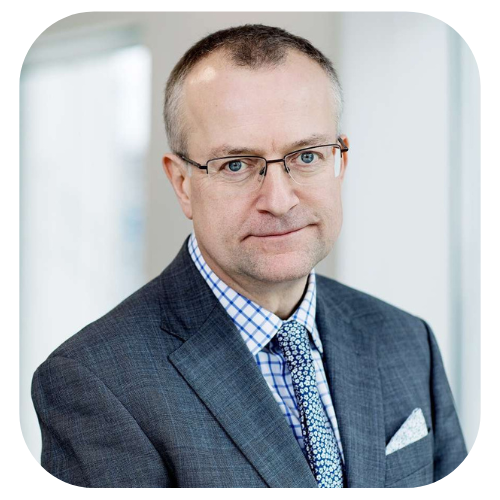 Pair 4:
Pair 4:
Mentor – Professor Jonathan Benger
Jonathan is Professor of Emergency Care at the University of the West of England, Bristol. He leads the Emergency Care Research Theme in the Centre for Health and Clinical Research and is Co-Director of the Research in Emergency Care Avon Collaborative Hub (REACH). Jonathan’s key research interests relate to cardiac arrest, airway management, early diagnostic technologies, workforce, design research and pre-hospital care.
Mentee – Dr Joht Chandan
Joht is an NIHR Academic Clinical Lecturer on the West Midlands Public Health Registrar Training Scheme based at the University of Birmingham. His primary research focuses on a public health approach to abuse and violence. He has expertise in population health data science, data linkage and medical education. Joht completed doctoral work focussing on the outcomes of individuals who have suffered childhood maltreatment and domestic abuse. In the topic area he has numerous high impact publications which have been disseminated with frequent news appearances on BBC News, Sky News and other leading international media outlets. During the COVID-19 pandemic, Joht highlighted the need for the introduction of a public health approach to tackling domestic abuse and childhood maltreatment. Joht has since been appointed as a scientific advisor to the Lancet Commission for Gender-Based Violence and Maltreatment of Young People.
Drivers for joining the programme
Jonathan has extensive experience of mentorship and has supported NIHR trainees at several levels. He has mentored a wide range of research staff across all levels of career progression and brings this experience to his NIHR mentor role to assist developing researchers in reaching their full potential. Jonathan as a NIHR senior research investigator with significant experience of mentoring was committed to supporting ‘NIHR and trainees who are making their way through the research pathway.’ He was also interested in seeing things from the perspectives of the mentee, learning from their experiences, and getting an understanding of university-wide grant and development processes. Joht did not have any prior mentoring experience; he was keen to be matched to a mentor who was ‘someone a lot more senior than me ... an inspirational figure in their own right.’
Relationship focus
The focus of the mentoring was on Joht’s career planning and progression, both short-term and long-term. Jonathan and Joht’s mentoring relationship spanned one year, between June 2021 and June 2022. During this period, they met for ten mentoring conversations via zoom.
Key topics
The mentoring topics included: managing others; manoeuvring the socio-political academic environment; personal impact; building and leading effective teams; transition to becoming an independent and proactive researcher; work-life balance. Jonathan observed that rather than talking about grant applications, the conversations were focused on ‘how to survive and thrive in an academic environment, how to develop a department, how to gain the trust and support of others and particularly how to navigate the political landscape effectively.’
Relationship satisfaction
They both confirmed that it was an excellent mentor-mentee match. Jonathan highlighted he was initially surprised as they were from different disciplines but described ‘a speciality match which worked very well.’ Joht also validated that this interdisciplinary match was very effective as he was able to have honest and open conversations and appreciate different perspectives on work challenges.
Mentoring outcomes
As the relationship developed, the sessions addressed various issues and challenges that Joht raised, moving the dynamic to a dual-learning process – ‘more of a friendship than a mentorship’, as suggested by Jonathan. Joht referred to a ‘fantastically reflective space’ as an added value which he fully embraced. He says, ‘what was so powerful about this opportunity for reflection is that I’ve not only used this opportunity to reflect on myself and I’ve briefly told my mentor this ... I’ve also taken on people to mentor and actually I’m using some of the lessons and advice that he’s given because I just wanted to share some of that with others.’
Overall reflections
It was evident that the mentoring relationship was healthy and productive. At the same time, it was also apparent that both Jonathan and Joht had built a good rapport. Jonathan pointed out that he found the sessions enjoyable and rewarding. Joht affirmed that this was a fantastic opportunity to build his confidence to pursue his career trajectory, based on validation from his mentor. He says, ‘I was delighted to be paired with an inspirational clinician in senior leadership post.... my mentor was a motivational, inspirational person who was able to share things in a different light that did leave[me] feeling good about my career, feeling good about myself after [each session].’
Overall, the relationship was a two-way process with both taking the lead on conversations as required. Jonathan took the lead at the start of the relationship; he says, ‘early on I set Joht
a couple of challenges such as mapping out what he thought his career might look like over the next five, ten and twenty years and trying to stimulate thought about his long-term research progression.’ Jonathan observed that ‘one of the reasons the mentoring relationship worked well [was] because I was genuinely independent, didn’t have a vested interest and was trying to help Joht find the right way for him without having an agenda of my own.’ He valued the honesty in their relationship which created ‘a safe space where there’s an opportunity to discuss problems that are quite challenging ... in a way that is straightforward, honest and practical’.
Pair 5:
Mentor – Dr Sally Fowler-Davis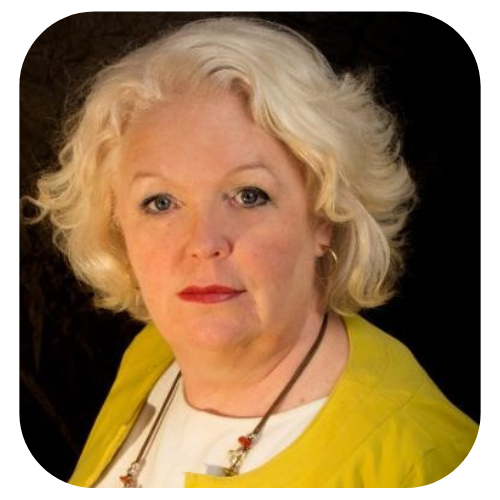
Sally is an Associate Professor, Organisation in Health and Care at Sheffield Hallam University. As an organisational scientist and health services researcher, Sally has a wide range of policy implementation experience, a growing understanding of co-production research methods and an interest in implementation science. She has a strong clinical background and continues her registration as an Allied Health Professional (AHP) and a strong interest in the health of older adults and the wellbeing of older populations. She is a NIHR Clinical Academic Training Advocate and Member of the NIHR Academy. Her research interests are currently associated with the measurement of health outcomes and measuring the quality and impact of services.
Mentee – Dr Felicity Dewhurst
Felicity is an Honorary Consultant in Palliative Medicine at St O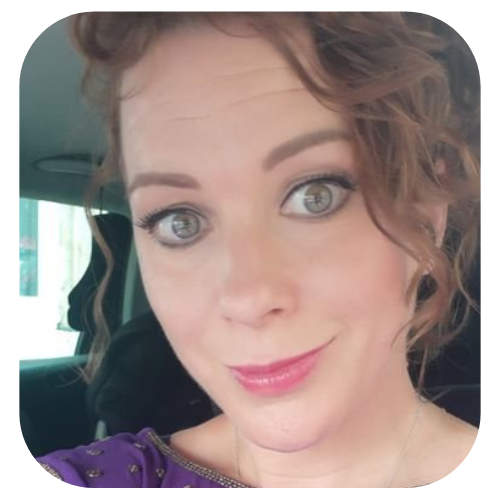 swald’s Hospice and an NIHR Academic Clinical Lecturer in the Population Health Sciences Institute at Newcastle University. Her research interests include promoting equity in palliative care particularly in relation to frailty, multimorbidity, non-malignant disease and ethnic minority groups.
swald’s Hospice and an NIHR Academic Clinical Lecturer in the Population Health Sciences Institute at Newcastle University. Her research interests include promoting equity in palliative care particularly in relation to frailty, multimorbidity, non-malignant disease and ethnic minority groups.
She is passionate about trying to improve care through education and service modification. Her postgraduate qualifications include an original research MD and a Masters’ in Health Professions Education. She has received research grants from NIHR, the Dunhill Foundation and the Royal College of Physicians, and research prizes from both Marie Curie and the British Geriatric Society. Felicity has previously been a Co-Chair of North East Palliative Registrars Research Alliance (NEPRRA) and is now a supporting consultant.
Drivers for joining the programme
In Sally’s NIHR clinical academic advocate role, she has developed extensive experience of supporting PCAF, doctoral and postdoctoral candidates from many different professions. She leads on portfolio studies and supports others to develop this skill. She is also a qualified coach and has wide experience of peer mentoring and research leadership and development within the NHS and the University sector. She has recent experience of bidding for NIHR grants and wide expertise in publication. She is active in organisations to build capacity with role development and applications with the NIHR CRN. She is a development leader for regional and local research capability and actively mentors NIHR doctoral fellows. Sally became a mentor to support NIHR’s ‘overarching strategic commitment to research in health and social care.’
Felicity was specifically ‘looking to build relationships and networks......and did not have any preconceived ideas about how a mentor would be different from a supervisor’.
Relationship focus
The focus of the mentoring relationship was on career transition and progression, including application for an advanced NIHR fellowship. Sally and Felicity had four mentoring conversations
between mid-2021 and early-2022. The mentoring conversations were via zoom and email exchanges related to Felicity’s NIHR fellowship application. The mentoring relationship
was a shared responsibility with both Sally and Felicity initiating discussions as appropriate.
Key topics
The key area that Felicity wanted to focus on was the applying for an NIHR Advanced Fellowship and this remained the main area of the mentoring conversation. Alongside this, the overall career development and wider factors like employment opportunities, widening her network were also explored.
Relationship satisfaction
Overall, it was a useful and open relationship, initially led by Sally to set a framework for their mentoring conversation; she used the GROW model to provide a structure to the mentoring conversations. Felicity reflected that rather than a specific task-focused relationship, this evolved into a nurturing relationship. She says, ‘I think she gave me a bit of a sounding board which was beneficial, allowed me to clarify my thoughts on quite a lot of things which was beneficial ... and just someone without an agenda guiding you through your own thought processes was what I found it to be like. I found it, coming at it from a palliative care perspective, I found it more of a counselling type relationship [rather] than a specific task-based relationship.’
Mentoring outcomes
Felicity wanted to ‘get more embedded within the NIHR process and by doing that put a stronger application forward for NIHR.’ Extending her network further was discussed, resulting in follow-ups with contacts at Sheffield Hallam University. Sally also posed questions around research methodologies, including discussion on the Medical Research Council (MRC) framework. In their last exchange by email, Sally provided feedback on Felicity’s fellowship proposal which was useful to her.
Felicity is due to submit her NIHR application in the next six months.
Overall reflections
Felicity benefited both personally and professionally from her mentor’s objective exploration for her situation which was independent and without bias. She confirmed this clearly, ‘I found it beneficial for someone who was totally removed ... to provide input. I think that is probably because we were in fairly disparate worlds from a research perspective and from a clinical perspective. So, it was good
from that point of view.’ Sally reflected that she found it interesting to know about Felicity’s area of work and she particularly enjoyed the discussion around the MRC Framework and application of research methodologies from her own experiences which was useful to her mentee.
Summary
At the beginning of the report, we set out four programme objectives. We are delighted to share that we have:
- Extended the NIHR mentoring programme to postdoctoral award holders from disciplines and professional backgrounds which may not have a strong mentoring tradition or may not have had access to programmes such as this in the past
- Promoted interdisciplinarity working; mentees are able to seek a mentor from a cognate or complementary discipline or professional background, where appropriate
- Supported mentoring relationships between individuals from different organisations and
institutions - Promoted equality, inclusion, and diversity through engagement with, and learning from, under-represented groups
The first cohort of the mentoring programme has been a huge success. Due to the demand for places on the programme - 172 expressions of interest - we created 34 matched pairs in the first cohort.
The evaluation demonstrates that the mentoring programme and relationships fostered a nurturing and supportive environment at a crucial and challenging time in many colleagues’ lives. Unprecedented challenges and constraints influenced every aspect of the mentoring programme and the mentoring relationships.
Research shows us that the most enriching mentoring relationships are those where there is reciprocity and mutual learning. Our programme illustrates the power of mentoring to cultivate mutually beneficial mentoring relationships where the positive impact reverberates beyond the mentoring relationships and programme.
So many mentoring programmes are reliant on goodwill and volunteerism, our programme is supported by the voluntary contribution of mentors and many active Steering Group members who willingly give their time in service of others – thank you.

